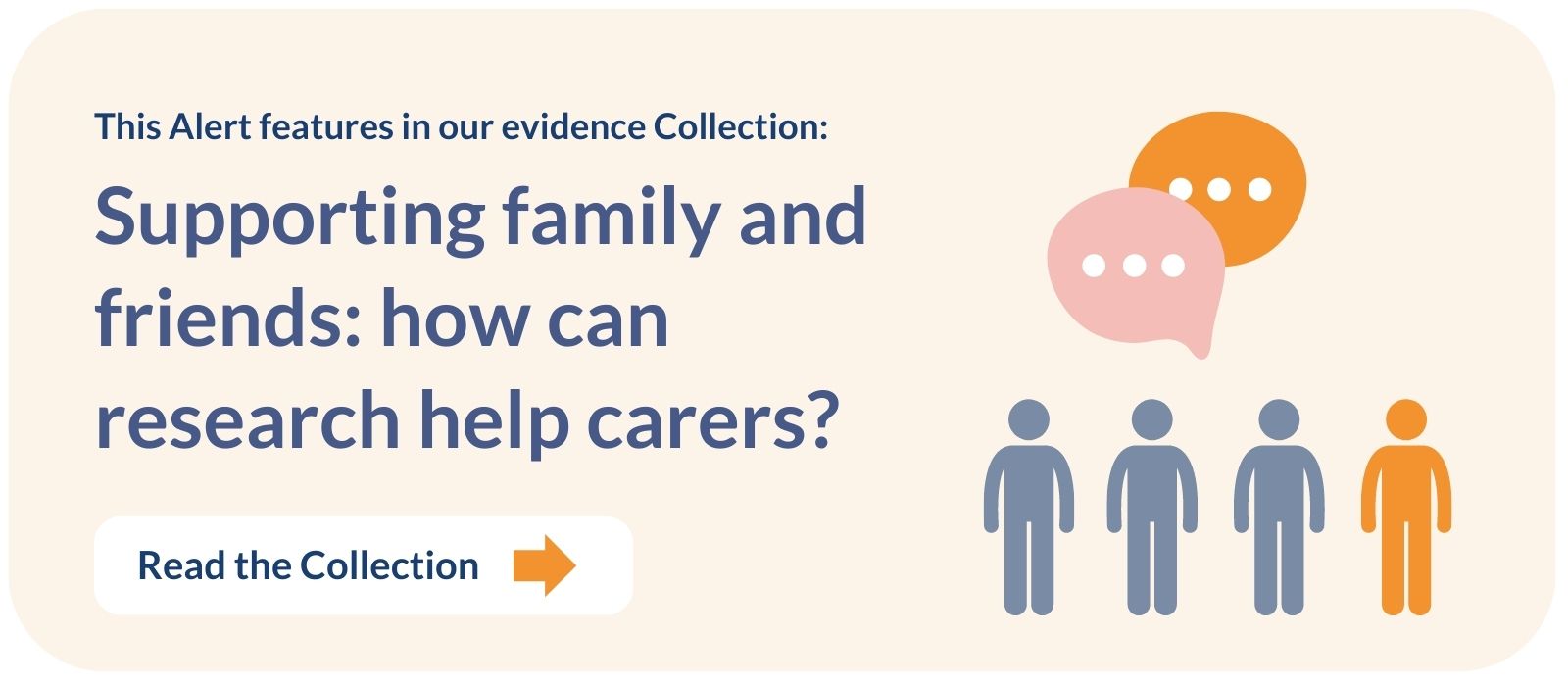This is a plain English summary of an original research article. The views expressed are those of the author(s) and reviewer(s) at the time of publication.
Many adults with learning disabilities place a high value on romantic relationships. New research identified the support they need to form loving partnerships. It also described the barriers they face.
In the past, adults with learning disabilities were not thought to have the same emotional, psychological or social needs as other people. This made it difficult for people with learning disabilities to have the adult relationships they wanted.
In this study, researchers asked adults with learning disabilities how they feel about love. Participants enjoyed caring and being cared for, and liked the comfort that relationships can bring. Some recognised the effort needed to keep relationships going.
A lack of social opportunities could make it difficult for people with learning disabilities to find love. Barriers were sometimes created by social care services. However, specialised dating agencies, along with strong family and staff support, could help people to form relationships.
Further information about learning disabilities is available on the NHS website.
What’s the issue?
It was once assumed that adults with learning disabilities do not have the same emotional or social needs as adults without learning disabilities. This has changed now. But many still lack the support they need to find love and form relationships.
Governments and care organisations need to understand the views of people with learning disabilities. This helps them create policies and practices that treat people as they’d like to be treated.
This study gave adults with learning disabilities the opportunity to speak about intimate relationships. It also asked them what kind of support they needed to develop and maintain relationships.
What’s new?
The research team worked with an advisory group of adults with learning disabilities. They recorded interviews with 40 adults with learning disabilities, both men and women. Diverse ethnic groups were represented, but only two individuals were attracted to the same sex. Half of the interviewees were in a relationship at the time of the study.
Interviewees placed a high value on having a partner. One said: “Someone to care for you, help with your ups and downs. Someone to comfort you and hug you…it’s just really nice to have that”
Many had lived for long periods of adult life without a partner. They described feeling lonely and excluded: “I can't imagine spending the rest of my life on my own, growing old on my own, I don't think it would be the nicest place”
People had a balanced view of relationships and understood the effort needed to keep relationships going: “..we have our differences, but the key think is just work through it, no matter how tough.. the situation is.”
Common factors that had helped interviewees develop a relationship were:
-
- family and staff support, with some interviewees describing warm relationships with social care staff
- opportunities to learn about relationships; and, for example, discussing all aspects of adult relationships at support groups
- specialist dating agencies had helped many interviewees, though they had far more male than female members. Men, and those looking for same-sex partners, could wait a long time for a date.
Common factors that had been barriers to finding a relationship were:
-
- not knowing how to meet a partner; no interviewee had a positive experience of mainstream dating sites which they found dangerous and ‘full of weirdos’. Dating agencies were expensive, and speed dating was frustrating as it required quick responses
- a lack of social opportunities and finances, since social care services did not prioritise people’s social lives. Few interviewees had jobs and would not meet a partner at work.
- barriers within social care services, with shift patterns preventing day staff from taking people to social events; and safeguarding concerns for co-residents when someone in a household wanted their partner to stay over.
- a lack of autonomy; interviewees resented their limited privacy, having to explain where they are going, or having family and staff making decisions on relationships for them.
In addition to writing academic papers, the researchers created videos to explain their findings. They ran two workshops and showed the videos to a wider group of 100 adults with learning disabilities. Many people at the workshops recognised the experiences described in the videos. This confirmed that the results were valid.
Why is this important?
In this study, adults with learning disabilities saw relationships as a source of pleasure and meaning. Yet care for people with learning disabilities tends to address basic physical needs. The researchers say that enabling a rich and full adult life, in all senses, is still not a priority.
Support staff and family carers sometimes try to protect adults with learning disabilities from the risks that are part of dating and relationships. This approach can stop them from having normal life experiences. While they should be protected from abuse, the researchers stress that the everyday highs and lows of relationships are part of the human experience.
Adult social care services, families and carers need to promote relationships, the study concluded. Care providers should try to reduce the barriers, they say.
Ways to help include:
-
- making social opportunities easier to attend
- including relationship support in an individual’s care plan
- promoting or setting up specialist dating agencies.
What’s next?
The findings of this research are in line with previous studies in the UK and abroad. Having a relationship is key to people’s sense of self. Support staff should consider this when supporting adults with learning disabilities. In addition, service providers should help staff by training them on how to talk about and support relationships.
This study is part of a larger project looking at the support that is needed for people with learning disabilities to have loving relationships. Other studies in the project have gathered information from specialist dating agencies, family carers and support staff.
There are areas that need more research. For example, interviewees in this study were all aged 22 and over, and younger people may have different views. The study did not include people with the most severe disabilities. The study group was self-selected and might have been more positive about relationships than others with learning disabilities.
This study was not able to recruit many adults with learning disabilities in same-sex relationships. Adults with autism who do not have learning disabilities were not included in this study. Their views on relationships need more research.
You may be interested to read
This summary is based on: McCarthy M, and others. ‘Love makes me feel good inside and my heart is fixed’: What adults with intellectual disabilities have to say about love and relationships. Journal of Applied Research in Intellectual Disabilities 2021;00:1-11
‘Love is a Wonderful Feeling’: a video explaining this research aimed at adults with learning disabilities.
‘Making Connections and Building Confidence: Dating Agencies for People with Learning Disabilities’: a video discussing the work of specialist dating and friendship agencies for people with learning disabilities.
Earlier research from the same authors on:
Specialist dating agencies for people with intellectual disabilities: McCarthy M, and others. Making connections and building confidence: A study of specialist dating agencies for people with intellectual disabilities. Sexuality and Disability 2020;38:3-18
How parents can support their children to form relationships: Bates C, and others. “She misses the subtleties, I help make the invisible visible”: Parents' role in supporting adults with intellectual disabilities with relationships. International Journal of Care and Caring 2020;5:3
How social care staff can support relationships: Bates C, and others. “Always trying to walk a bit of a tightrope”: The role of social care staff in supporting adults with intellectual and developmental disabilities to develop and maintain loving relationships. British Journal of Learning Disabilities 2020;48:4
Funding: This research was funded by the NIHR School for Social Care Research.
Conflicts of Interest: The study authors declare no conflicts of interest.
Disclaimer: Summaries on NIHR Evidence are not a substitute for professional medical advice. They provide information about research which is funded or supported by the NIHR. Please note that the views expressed are those of the author(s) and reviewer(s) and not necessarily those of the NHS, the NIHR or the Department of Health and Social Care.
NIHR Evidence is covered by the creative commons, CC-BY licence. Written content and infographics may be freely reproduced provided that suitable acknowledgement is made. Note, this licence excludes comments and images made by third parties, audiovisual content, and linked content on other websites.

